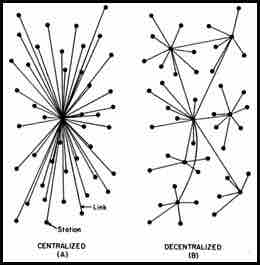Defining Empowerment
Empowerment is a process that enables individuals and groups to fully access personal and collective power and employ this power when engaging with other people, other institutions, or society. Empowerment does not give people power; rather, it helps to release and express the power that people already have.
Empowerment encourages people to gain the skills and knowledge that allows them to overcome obstacles in life and work. This will ultimately enable personal development and a deeper sense of professional fulfillment. Empowering people in organizations can encourage more confident, capable, and motivated employees. Organizations are increasingly aware that empowerment often leads to better performance and higher operational efficiency, and there is a general trend toward structuring organizations for empowerment.
Empowerment within the Organization
Empowering employees in the workplace means providing them with opportunities to make their own decisions related to their tasks. This can be a powerful and positive aspect within an organization that promotes shared power and enables checks and balances in decision-making processes.
Empowerment in organizations includes:
- Making decisions about personal and collective circumstances;
- Accessing information and resources for decision-making;
- Considering a range of options from which to choose (and understanding the options rather than just deciding yes or no);
- Exercising assertiveness in collective decision-making;
- Employing positive thoughts toward the ability to make change;
- Learning and accessing skills for improving personal and collective circumstances; and
- Informing others' perceptions though exchange, education, and engagement.
Though the idea of empowerment can produce very successful results, there are certain risks are involved. When turning responsibility over to others, it is important to keep in mind that diversifying power creates more voices and therefore potentially more conflict and discussion. All of these elements can slow down the decision-making process. As organizations move toward higher levels of empowerment, protocols should be put in place to mitigate failure and improve decision-making efficiency across the board.

Decentralization
One key technique of empowering employees and providing autonomy is decentralizing the organizational structure. Notice how the diagram of the centralized organization looks like one large asterisk with many spokes, whereas the diagram of the decentralized organization looks like many small interconnected asterisks.
Increasing Empowerment
Leaders within an organization can encourage employees to put empowerment into practice in several ways. If leaders want to tap into the possibilities of an empowerment-based company, they need to have confidence in employees. Employees should also be given opportunities to make their own decisions and succeed. For an empowerment-based organization, rules and policies that interfere with self-management should be made more lenient. Leaders should also set goals that can inspire people.
The following are three key concepts that leaders can use to empower employees throughout an organization:
- Share information with everyone. By sharing information with everyone, leaders gain a clear picture of the company and its current situation. Allowing all employees to view company information helps to build trust between employers and employees. This also provides decision-makers with important perspectives to assess prior to deciding.
- Create autonomy through boundaries. By opening communication through information sharing, space can be created for feedback and dialogue about what holds people back from being empowered. It is critical that leaders minimize micro-management so that employees, who are specialists at the function they are assigned, can set the tone for how a particular task is accomplished.
- Replace the old hierarchy with self-managed teams. By replacing the old hierarchy with self-managed teams, more responsibility is placed upon unique and self-managed teams; this can lead to better communication, diversity of strategies, and higher performance.
The success of the modern organization relies heavily on understanding the complexity of a diverse global market. Leveraging employee knowledge and enabling autonomy is increasingly important in capturing value and attaining competitive advantages in this complex business environment.